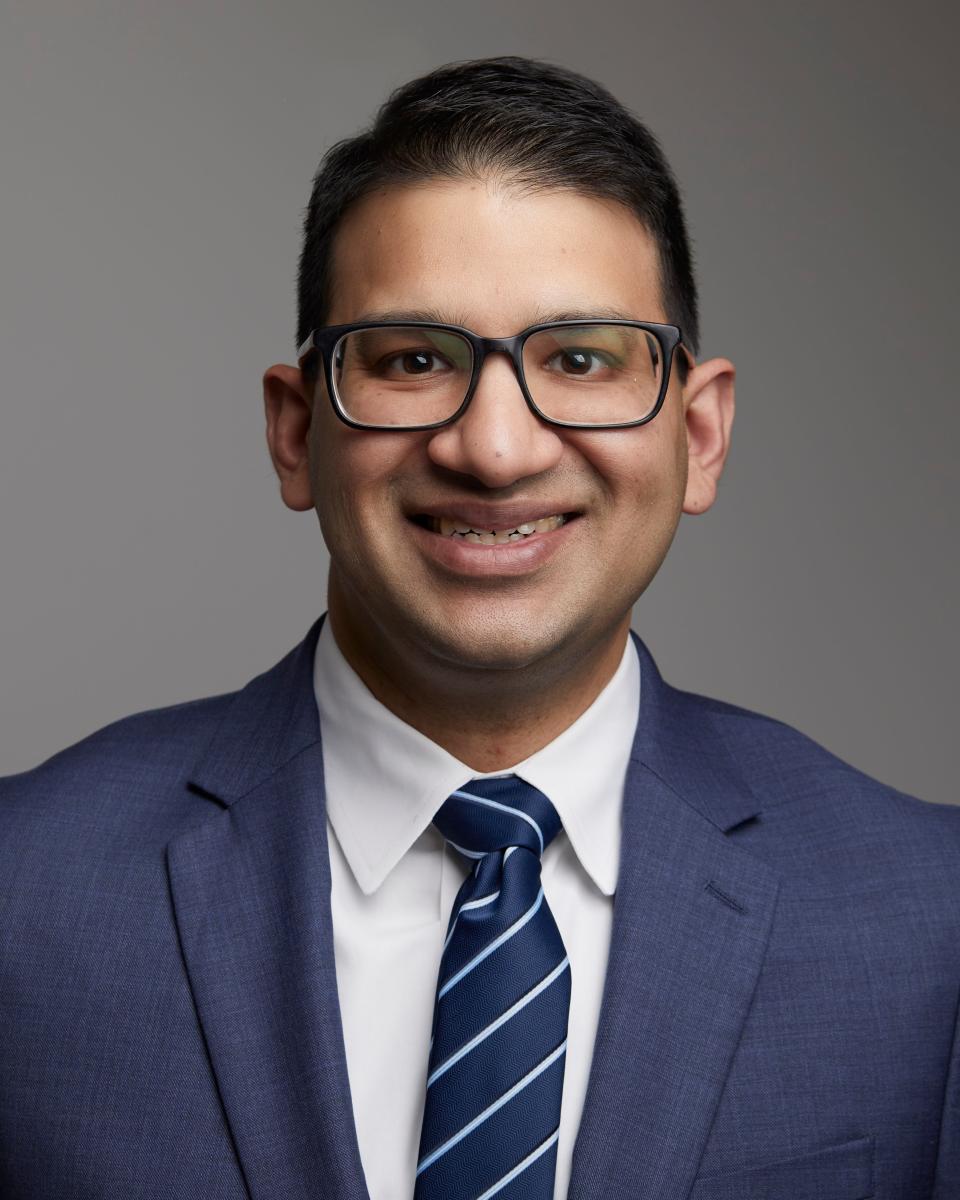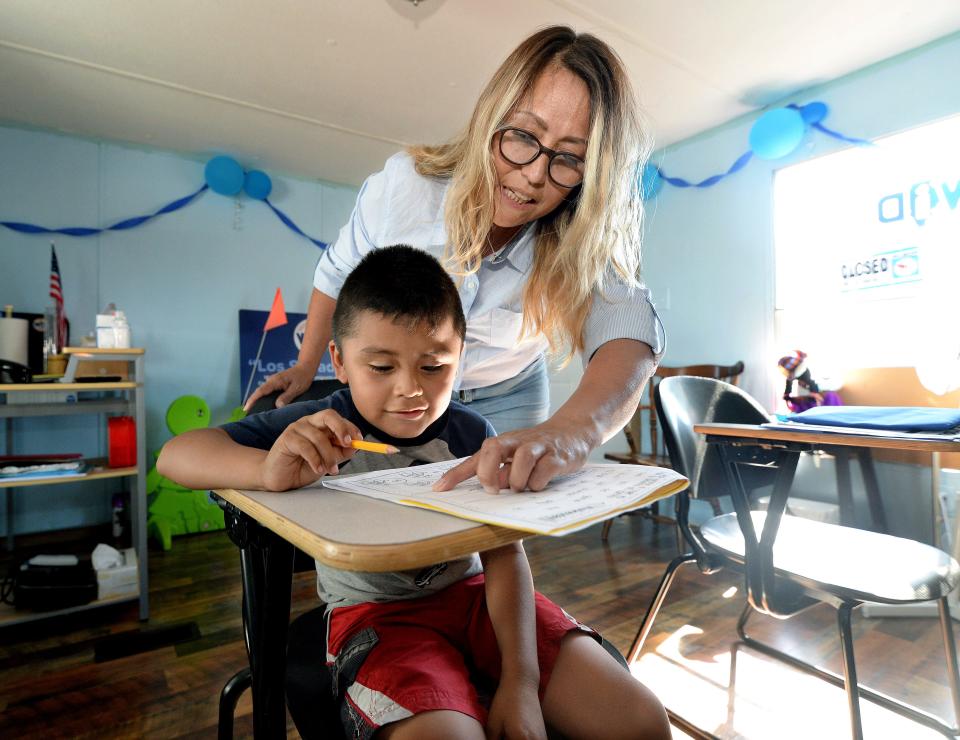Racial disparity in healthcare: 'No one goes into medicine wanting to see patients suffer'
Leaders in Illinois are working to eliminate racial healthcare disparities in light of the COVID-19 pandemic through a new program and cultural bias training.
Illinois Department of Public Health awarded grants totaling $3.7 million to organizations across the state this week to address inequities within health departments and communities. The program, Activating Relationships in Illinois for Systemic Equity or ARISE, is funded by the Center for Disease Control and a joint initiative of IDPH’s Center for Minority Health Services and The Center for Rural Health, in collaboration with Well-being and Equity (WE) in the World.
"Those of us in public health are too familiar with disparities, social and structural challenges like poverty, and structural and racial discrimination that have affected communities of color in rural areas of our state for far too long, " said IDPH Director Dr. Sameer Vohra Tuesday.

"We believe these tools will provide the resources necessary to close health equity gaps in vaccinations and build most importantly the infrastructure for more long-term systematic change," Vohra said.
The Springfield chapter of Zeta Phi Beta Sorority, Inc., received a $10,000 ARISE grant. Chapter president Queenie Drake said the sorority will use the money for community projects in Sangamon County aimed at educating the public about vaccines.
The disproportionate number of deaths from COVID-19 heightened long-standing differences in health outcomes between Black and other racial and ethnic populations in the U.S., according to an April Pew Research Center study on views about health disparities. Among Black respondents, 49% say Black people generally have worse health outcomes because healthcare providers are less likely to give Black people the most advanced medical care. Also, 47% say hospitals and medical centers give lower priority to their well-being.
Beyond the public health vaccination effort, some area hospitals have adopted cultural bias training and equity, diversity, and inclusion teams to help people of color navigate the healthcare environment and overall reverse the disparities.
“I think that there are individuals who feel really comforted by encountering people that share aspects of their identity and then there may be some people who don't really think about it at all," said Valeria Cueto, vice president of equity, diversity and inclusion (EDI) at Memorial Health. "We at Memorial believe foundationally that there's strength in diversity and that we're a better organization when we work towards being both diverse and inclusive so we're working towards increasing representation and the goal is to reflect the communities that we're serving.”
Among Hispanic patients, language can be a barrier when trying to receive medical care as soon as they walk through hospital doors, said Kelly Hamlin, director of the Western Illinois Dreamers Immigrant and Refugee welcoming center in Springfield.

“Most of the time its people at the front desk who don’t want to make the effort to understand and it can be frustrating,” Hamlin said. “Depending on the person, sometimes they’ll look and say ‘Oh I don't want to deal with that,’ and that happens to us a lot.”
Hamlin said some Hispanic patients neglect getting healthcare because they come from countries that already lack access and the process to get it locally can be stressful. Though hospitals have language translators she said there are still missing competency factors that could help create better outcomes.
More:988 becomes the new national hotline to help in mental health crises, here's how it works
"I think doctors need to know the difference between the cultures of countries because being Hispanic is not just being Mexican," she said. "They use tablets to call interpreters but think all the Hispanic community is the same though we are not."
A history of medical discrimination and abuse is behind the mistrust towards the healthcare industry for Black Americans. Some participants in the Pew study pointed to the lasting wariness from the 1932 Tuskegee experiment and other abuses for initial hesitancy to getting a coronavirus vaccine.
"A lot of African Americans worry when they're going into a healthcare setting because oftentimes the language is knowledge that you don't have expertise in and there's no real way to verify it," said Dr. Christopher Smyre, a family medicine physician at Southern Illinois University School of Medicine in Springfield. "You try to trust that they have your best intentions at heart but history has told us that that is not always a well-placed trust."
The Pew study found among Black adults, 28% say they have a great deal of confidence in medical scientists to act in the public’s best interests, down slightly from 33% in November 2020. The share of Hispanic adults with a strong level of trust in medical scientists is 29% which is the same rating as among white adults.
In 2021 Gov. JB Pritzker signed the Health Care and Human Services Reform Act requiring bias training for doctors to promote healthcare equity for Black, Hispanic and low-income patients. According to the American Hospital Association Institute for Diversity and Health Equity, cultural competency and implicit bias training can increase a healthcare professional's understanding of what's important to patients and play a key role in care decisions.
Smyre, who is also SIU's director of diversity, equity and inclusion of family and community medicine at SIU said he teaches his staff that understanding a patient's values first is key to providing quality healthcare.
"You have to know their values so you can present information in a way that is meaningful and create an opportunity for their decision-making. Sometimes pressing patients to really understand all the details in a way that they can appreciate helps them to know ‘Oh this is an option that aligns with my values or this is in fact what I need.”
Smyre said he has witnessed communication breakdowns between a patient and provider because of cultural differences. He said understanding a patient's communication style can make a difference in care.
“When we're stressed, some people can be more emotionally expressive while some use emotional restraint. African Americans generally fall into more emotional expressive categories... I've seen nurses or other healthcare providers get nervous sometimes because the patient is getting louder so they think ‘Oh my God, it's a threat here,’ but once you go and talk with them, yeah they may be louder, but they're not actually threatening or doing anything that I would deem hostile behavior, they're just upset,” he said. “Those are cultural differences that you won't know unless you actually spend time and are engaging in meeting people outside your own cultural norms or your own communication and purposes.”
Smyre said he practices self-examination if he runs into a patient with a different communication style.
“When someone is more expressive of their emotions, I have to sort of take a moment to reflect and say If I'm feeling discomfort, where's the discomfort coming from," he said. “Being able to slow ourselves down to really see where the concern is helps in two ways: by minimizing our implicit bias and clarifying the concern. Once we can name the concern, then we can think it through and address it in a way that builds inclusion, trust, and partnership, because no one goes into medicine wanting to see patients suffer.”
Cueto said patients at Memorial Health can reach out to the EDI team if they want help finding a provider who with they can identify. She said the process is as simple as calling and being straightforward with the request.
“Someone could call and say ‘Hey I want to find a doctor that understands this and will be able to support me in this,’ and then we would work on finding that kind of provider. We've had that happen before with LGBTQ patients who have called and been like, ‘I want a provider that is not just tolerant of my identity but has particular competencies related to it,’ and we've done some investigating and then found a provider who would be a good match.”
Smyre said there are many variables beyond the patient and providers control that influence health outcomes so working to maximize what can be controlled can be helpful. He said normalizing the idea of switching providers at the sign of discomfort can also foster better care.
“If you're meeting with a doctor that it doesn't seem like you're connecting with there is nothing wrong with switching or asking for a different provider... I've had some patients who’ve seen one of my colleagues and connected with them more and I was okay with that because I want to make sure they’re being seen by someone who they can be open and honest with," Smyre said.
“At the end of the day it's your health and you want to be able to advocate for it in a way that you're able to see someone that understands you."
Smyre also said implicit bias training has led to more conversations about race and its influence on medical approaches in the past. He thinks the training will help move the industry forward and minimize biases.
“Historically we're taught that race is a biological thing and that if you're a different race, you have different biology and physiology. We know now that's not to be the case so we're reviewing some of these assumptions...Now what we're doing is going back and looking at the science, looking at what we do and don't know about different disease processes, and really taking out some of those things that have race as a factor because race really isn’t a factor in our physiology and biology, it's a social construct,” Smyre said.
“I think that realization and conversation around how we're teaching medical students who are going to be future physicians, how we're engaging and thinking about what the numbers mean, what tests we're ordering and how to interpret them more appropriately, allows us to have better health outcomes and actually achieve equity and care. We've got a long way to go but I think we're now at a point of having real honest conversations.”
While Hamlin praised the rise in EDI programs she said they're only effective if led by someone who is hands-on in the community. She hopes to see an increased focus on understanding the background and cultures of different ethnicities, factors she believes can make a difference in care but are overlooked.
"You can sit in the office with a good title but it means nothing if you are not familiar with what's actually going on in the community. It's not about just training them but who’s training and who manages them because someone who isn’t on the grounds will not understand."
This article originally appeared on State Journal-Register: Illinois ARISE, cultural bias training aim to cure healthcare inequity

